Change Language :
iglidur® F - Material data
Material table
General specification
Unit
iglidur® F
Test method
density
g/cm³
1,25
Colour
black colour
max. Moisture absorption at 23°C/50% room humidity.
% by weight
1,8
DIN 53495
max. total moisture absorption
wt.-%
8,4
Sliding friction coefficient, dynamic, against steel
µ
0,1 - 0,39
pv value, max. (dry)
MPa x m/s
0,34
Mechanical specification
flexural modulus
MPa
11.600
DIN 53457
flexural strength at 20°C
MPa
260
DIN 53452
Compressive strength
MPa
98
maximum recommended surface pressure (20°C)
MPa
105
Shore D hardness
84
DIN 53505
Physical and thermal specification
Upper long-term application temperature
°C
+140
Upper short-term application temperature
°C
+180
Lower application temperature
°C
-40
thermal conductivity
[W/m x K]
0,65
ASTM C 177
coefficient of thermal expansion (at 23°C)
[K-1 x 10-5]
12
DIN 53752
Electrical specification
Volume resistivity
Ωcm
< 103
DIN IEC 93
surface resistance
Ω
< 102
DIN 53482
Table 01: Material data
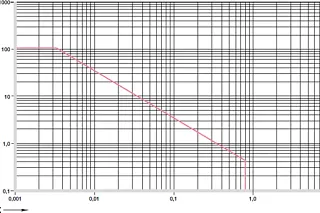
diagram. 01: Permissible pv value for iglidur® F plain bearings with 1 mm wall thickness in dry operation against a steel shaft, at +20 °C, installed in a steel housing
X = surface speed [m/s]
Y = load [MPa]
When plain bearings need to be electrically conductive, especially in applications that should keep out static, iglidur® F is the right choice. Moreover, the iglidur® F plain bearings are extremely pressure-resistant. At room temperature, they could be statically loaded up to 105MPa.
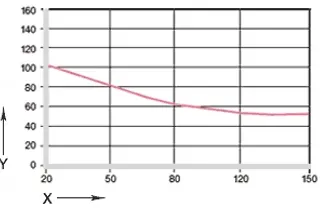
diagram. 02: maximum recommended surface pressure as a function of temperature (105 MPa at +20 °C)
X = temperature [°C]
Y = load [MPa]
Mechanical specification
The maximum recommended surface pressure represents a mechanical material parameter. The compressive strength of iglidur® F plain bearings decreases with increasing temperatures. diagram 02 illustrates this correlation. At the long-term permissible application temperature of +140 °C, the permissible surface pressure is still 50 MPa.
diagram. 03 shows the elastic deformation of iglidur® F under radial load. Under the maximum recommended surface pressure of 105 MPa, the deformation is less than 3.0 %.Plastic deformation can be ignored up to this pressure load. However, it also depends on the duration of the load.
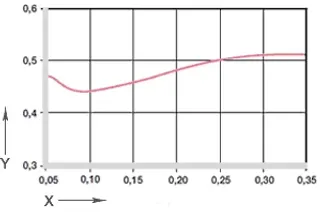
Diagram 04: Coefficient of friction as a function of the surface speed, p = 0.75MPa
X = surface speed [m/s]
Y = coefficient of friction μ
Friction and wear
The coefficients of friction in dry operation are not as favourable with iglidur® F bearings as with various other iglidur® materials. However, iglidur®® bearings can be lubricated without hesitation, and in comparison with lubricated iglidur®® bearings, iglidur®® F bearings achieve excellent results.
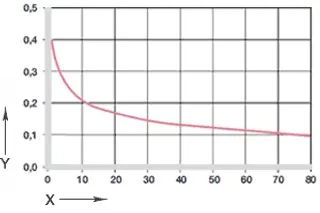
Diagram 05: Coefficient of friction as a function of the pressure, v = 0.01m/s
X = load [MPa]
Y = coefficient of friction μ
iglidur® F
Dry
Fat
oil
water
coefficient of friction µ
0,1 - 0,39
0,09
0,04
0,04
Table 04: coefficient of friction for iglidur® F against steel (Ra = 1 μm, 50 HRC)
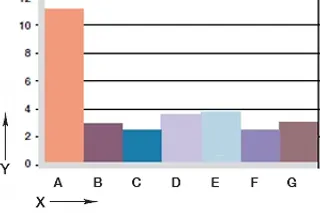
diagram. 06: Wear, rotating application with subdl. shaft materials, p = 1MPa, v = 0.3m/s
X = Shaft material
Y = wear [μm/km]
A = aluminium, hard anodised
B = free cutting steel
C = Cf53
D = Cf53, hard chrome-plated
E = HR carbon steel
F = 304 SS
G = high grade steel
Shaft materials
Diagrams 06 and 07 show an extension of the results of tests with different shaft materials carried out with plain bearings made from iglidur® F. In the lowest load range, the hard-chrome plated shaft proves to be the most favourable mating partner for rotating applications with iglidur® F plain bearings.
Consulting
I look forward to answering your questions

igus Australia1300 726 244Write e-mail
Shipping and consultation
In person:
Monday to Friday from 8 am - 5 pm.


